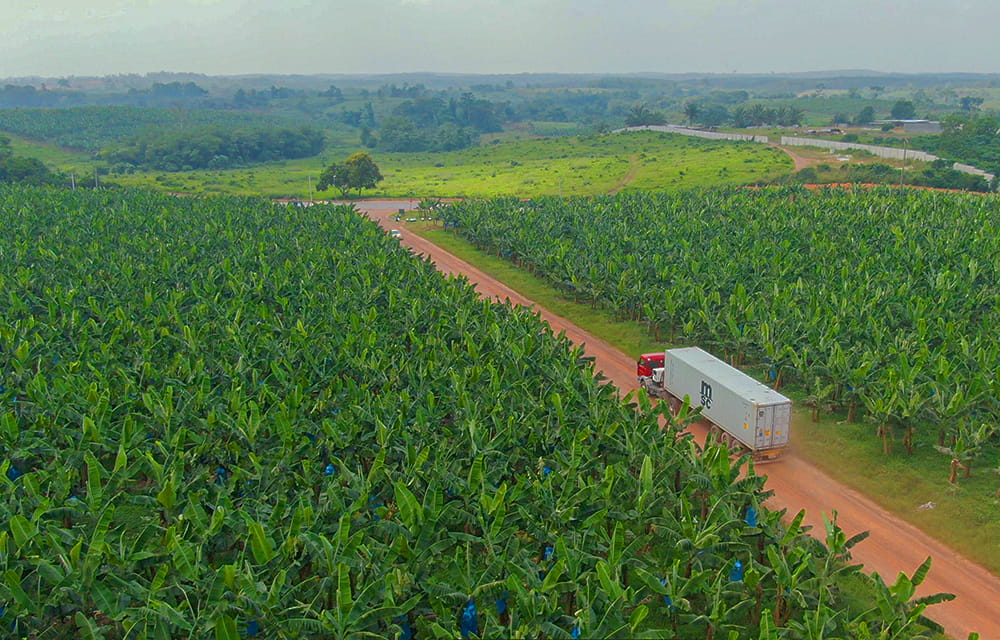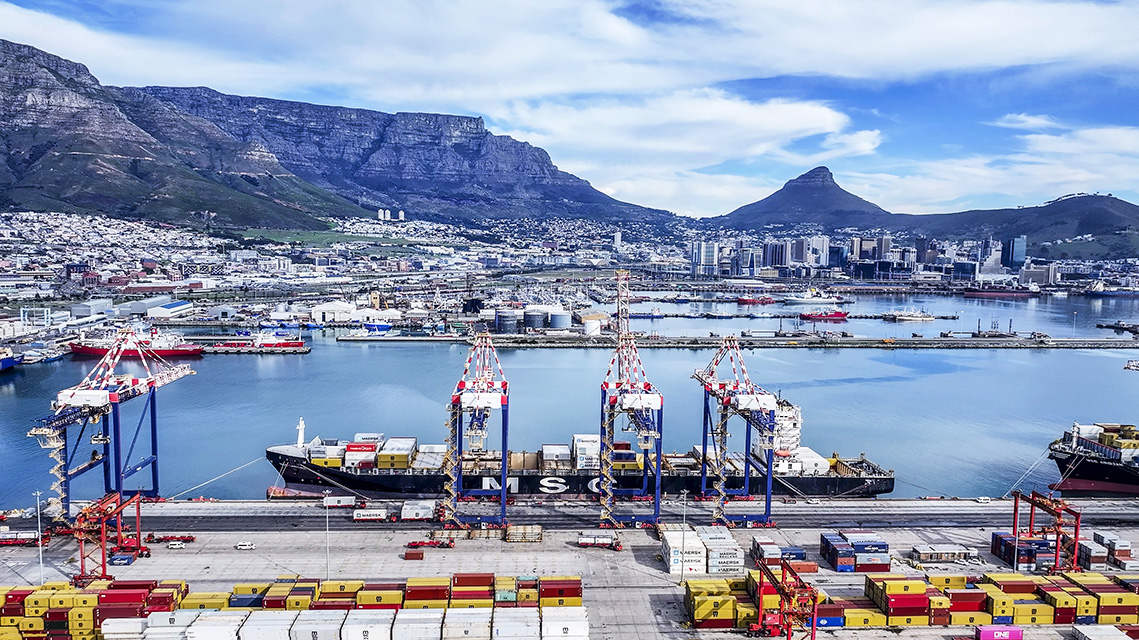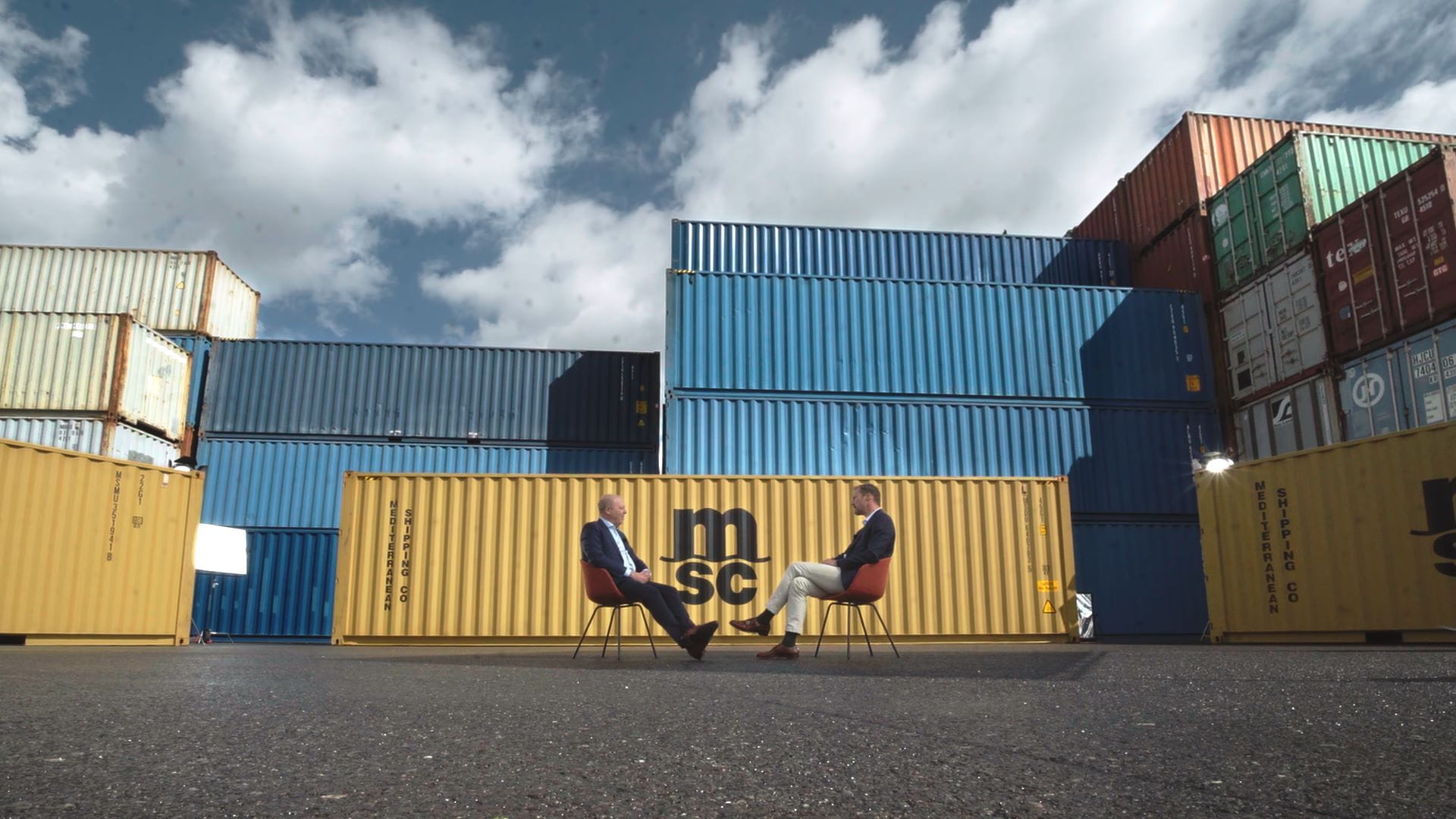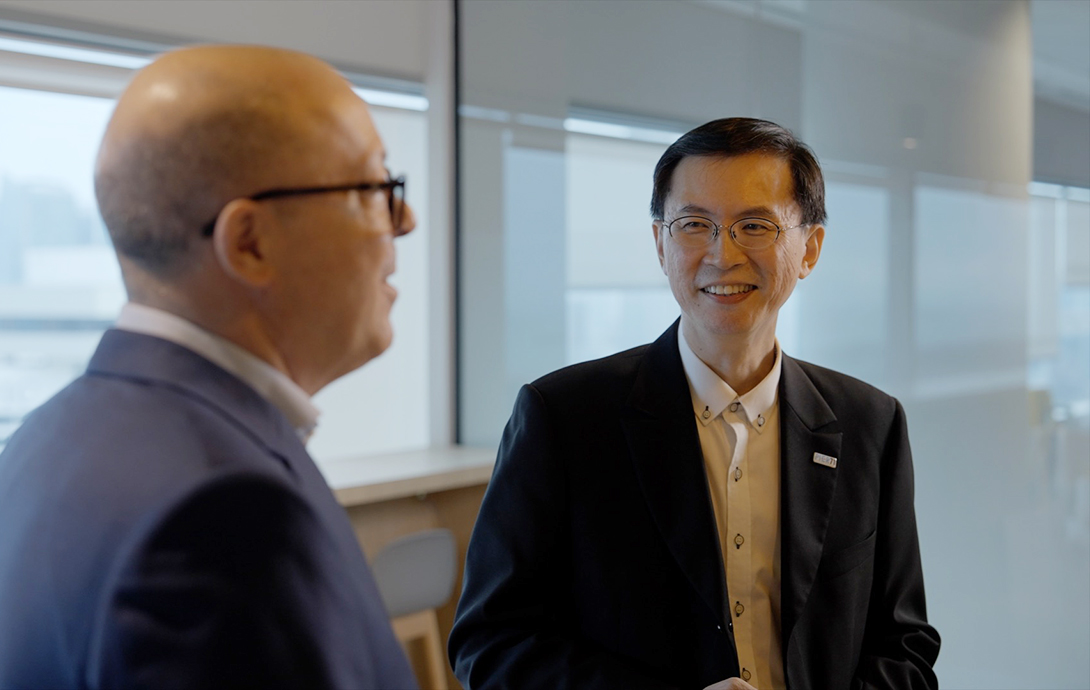
/zh/newsroom/stories/digital/2023/msc-digital-talks-ep,-d-,2-digitalization-and-trade-logistics,-the-un-perspective
MSC Digital Talks Ep.2: Digitalization and Trade Logistics, the UN Perspective
13/06/2022
In the second episode of our #MSCDigitalTalks series, MSC’s CDIO Andre Simha spoke to Jan Hoffmann, Head of Trade Logistics at the United Nations Conference on Trade and Development (UNCTAD), about the impact of recent advances of digitalization on global trade.
In this episode, Jan shares that the use of digital solutions advanced exponentially during the first two years of the COVID-19 pandemic. All of a sudden, UNCTAD found that a lot of the digital trade initiatives it was working on became not only more welcome but also much more in demand.
" People in the past loved to touch paper and have all these complicated procedures, they now realize it's actually not such a bad thing to move towards electronic payment, single windows, pre-arrival processing automation, trade information portals. "
UNCTAD
Digital collaboration is key to digital success
UNCTAD believes in the importance of collaborating with international organizations to standardize digitalization initiatives across global trade and logistics. The private sector does a great job at innovating digital solutions, explains Jan, but for digitalization to be successful it also requires the implementation of public global standards, such as those of the International Organization for Standardization (ISO), United Nations Centre for Trade Facilitation and Electronic Business (CEFACT), World Trade Organization (WTO), World Customs Organization (WCO) and others. With the support of those international organizations, even small players, small companies and developing countries can benefit from digitalization equally.
Process optimization is critical to this success, not least because it supports the goals of the energy transition, arguably the most important transition that the shipping industry is facing today. To reach the target of zero greenhouse gas emissions by 2050 from shipping, digitalization will be as important as alternative energy and new fuel technologies. Jan gives as examples, port call optimization, which can ensure that vessels travel at an optimal speed, as opposed to racing to dock only to wait in port, and pre-arrival processing, which can increase efficiency by making life easier for both shippers and customs authorities.
About MSC Digital Talks
In each episode, MSC’s CDIO André Simha speaks to a different leader or expert about the future of digitalisation, innovation and technology. The series is part of our efforts to highlight the benefits of digitalisation in container shipping and to promote collaboration and industry standards across the supply chain.
Follow #MSCDigitalTalks on LinkedIn to watch the latest episodes and join the conversation.
Read Episode 2 Transcript
INTRODUCTION
Andre Simha: Jan, wonderful to see you again. With this beautiful sun we have today in Geneva. So, this is the way you work? At the UNCTAD, at the United Nations.
Jan Hoffman: Yes, the logistics of international trade. Trade Logistics branch, looking at all types of technical issues from transport to trade facilitation. And we like to say we "think", "debate" and "deliver". So, we "think": we produce public goods statistics, research, impact assessments for the IMO, this type of thing. We "debate": we provide a forum for the member states. And last but not least, we also help them "deliver". We deliver capacity building, training, on the ground advisory services, to implement global standards to make trade more efficient. And a lot of this has to do with digitalisation.
Andre Simha: Digitalisation. So, all this happens here. It's wonderful. Well, you know, we're filming for digital talks for this series we're doing. And I thought it was great to be able to meet with you and talk about this together. So, shall we take a walk by the lake?
Jan Hoffman: Let's go to the lake.
SHIPPING IS A FAMILY BUSINESS (01:30)
Andre Simha: So, Jan, you mentioned to me several times that shipping was actually a family business, right?
Jan Hoffman: Yes. I grew up as the son of an officer of Hamburg Süd. So that was the growing up, and then later on, my parents started their own shipping business. I think that combination of having worked with a real shipping company, the family business, and studying economics got me my first job at the IMO, International Maritime Organisation in London, and from there to Chile, covering ports and shipping in Latin America and the Caribbean, and now 20 years already in Geneva. Over there, our offices with all these international organizations working on shipping in this beautiful international Geneva. How did you end up anchoring here in Geneva?
Andre Simha: I was actually born in Geneva, and I spent most of my 40 years of professional career in trade and in shipping. And when we look at the world of shipping and logistics today, the importance of regulators and collaborating with international organizations is extremely important. And I really think that it's only by working together and collaborating that we can improve efficiencies and of course work on digitalisation together.
INTERNATIONAL TRADE AND LOGISTICS (03:10)
Andre Simha: From your perspective, what's your feeling of the status of the international trade and logistics?
Jan Hoffman: Yeah, it's impressive what has happened over the last little more than two years, with this pandemic, where we all thought trade would go down tremendously, but actually trade in goods has been going up. Because you and I, when we are in lockdown, we no longer go to the hairdresser, to the movies, to the restaurants, but we buy things, and these come in containers. So, what has been positive? We can acknowledge, during the pandemic, a lot of digital solutions have been advancing more in the past two years, more than in the five years before. Because people in the past loved to touch paper and have all these complicated procedures, they now realize it's actually not such a bad thing to move towards electronic payment, single windows, pre-arrival processing, automation, trade information portals. A lot of things that we are also working on at UNCTAD. So, all of a sudden, we find that solutions that digitalise trade are much more welcome than they were two years ago.
Andre Simha: Of course, there's more adoption.
Jan Hoffman: Much more demand for our programs. And we see now a lot of the work we have been doing. Like I say, we have to lock in the progress made during the lockdown. We were on lockdown, and now let's keep that progress that we have made in digitalisation.
Andre Simha: Oh, absolutely. I think you're spot on. And if we link this now to the digitalisation with container shipping, the digitalisation can learn from containerization, because the container was invented by the private sector. But it only became the beautiful, great solution that promoted trade, or the humble hero, as "The Economist" called it, thanks to public global standards. So, the ISO, the CEFACT, WCO, standards type of things, they also need to help digital solutions, which are driven by the private sector. But they will only really have a positive global impact once the international organizations, the ISO, the CEFACT, WTO, WCO, make them global. So that also the small players, the small companies, the developing countries, all these lead to being able to adopt these new standards.
Jan Hoffman: That's very important. I think we mustn't forget all these small and medium sized companies which also need to be able to participate.
EVOLUTION OF DIGITALIZATION (06:07)
Andre Simha: But how do you see digitalization helping the evolution of trade? Which, as we know, is growing exponentially, as you mentioned it. How do you see that moving in the next couple of years?
Jan Hoffman: Optimization of processes is necessary. It complements the one big transition that the industry is facing, which is the energy transition. We must have zero greenhouse gas emissions by 2050 from shipping. How do we get there? There are alternative fuels, there are new technologies, there are all types of supporting measures. Digitalisation is one of them, like port optimization is one of my favorites. We don't go fast and then we wait in the port. No, we go with the optimal speed. So, a lot of benefits that digitalisation can also give to this very important energy transition.
Andre Simha: I think that is obviously a very hot topic. I think that, as you mentioned, digitalisation is simplifying the documentation processes, getting rid pf paper, when we talk about E-bills and all the other related documents. Just in time, a lot of these effort that, as you know, are being promoted by associations, such as DCSA, the Digital Container Shipping Association. I think that we are really on that path, which as you said, was really exacerbated during the pandemic.
Jan Hoffman: There's one message that we like to get across about all these digital solutions, trade facilitation and transport facilitation. I'm pretty sure you have also seen some PowerPoints, some presentation document with a balance. Somebody tells you: either you facilitate trade and make it easy and digital, or you control. And for me, this is really the wrong picture. All the specific solutions that we have talked about this afternoon: from risk management to automation, to pre-arrival processing, to more transparency, to single windows and so on and so forth, they all help achieve both. They make life easier for the carriers, providers and the shippers, and they help the customs authorities, any customs and other border agencies. And this has improved. This has improved during the last two or three years. And at the same time, we make processes more efficient.
Andre Simha: I completely agree with you. And I think you need to make it mandatory. But as you say it's not a trade-off. Well Jan, thanks so much for this, the insights that you've given me which I found extremely interesting, so I really thank you for that. And I hope we'll have the opportunity to continue this conversation. Thank you.
Jan Hoffman: Thank you.




